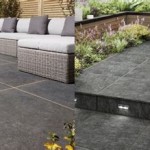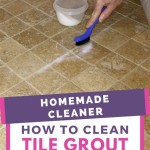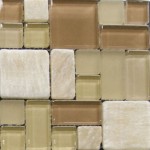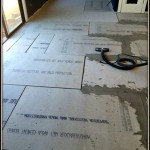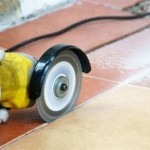Essential Aspects of Using Extra Adhesive With Self-Stick Tile
Self-stick tile is a highly convenient and versatile flooring option that offers a quick and easy installation process. However, there are instances where it may be necessary to supplement the existing adhesive with additional adhesive to ensure a secure and durable bond. To achieve optimal results, it is crucial to understand the appropriate use of extra adhesive and the best practices for application. ### When to Use Extra Adhesive Generally, self-stick tile does not require additional adhesive if the surface it is being installed on is well-prepared. However, extra adhesive can be beneficial in certain circumstances: -Uneven surfaces:
If the surface has minor irregularities or imperfections, using extra adhesive can help compensate for the unevenness and create a more secure bond. -High-traffic areas:
For areas that experience heavy foot traffic, such as entryways or kitchens, extra adhesive can provide enhanced durability and prevent the tiles from shifting or peeling. -Vertical surfaces:
Self-stick tiles can be used on vertical surfaces, but additional adhesive is recommended to ensure a strong and lasting bond. -Substrates with low surface energy:
Surfaces with low surface energy, such as concrete that has been treated with a sealant or painted with a glossy finish, may require extra adhesive for better adhesion. ### Choosing the Right Adhesive Selecting the appropriate type of adhesive for your self-stick tile is essential. Some adhesives that work well include: -Construction adhesive:
This adhesive provides a strong and permanent bond, suitable for high-traffic areas and vertical surfaces. -Liquid nail:
A solvent-based adhesive that is ideal for bonding materials with low surface energy or uneven surfaces. -Epoxy:
A two-part adhesive that creates a durable and chemical-resistant bond, making it perfect for exterior or wet areas. ### Proper Application of Extra Adhesive When applying extra adhesive, follow these guidelines: -Prepare the surface:
Ensure the surface is clean, dry, and free of debris or dust. -Apply adhesive sparingly:
Do not apply too much adhesive, as this can cause excess oozing and create an uneven surface. -Use a notched trowel:
Use a notched trowel to apply the adhesive evenly to the back of the tile. -Press the tile firmly:
Once adhesive has been applied, press the tile firmly into place and hold for a few seconds to ensure a good bond. -Remove excess adhesive:
If any excess adhesive squeezes out, wipe it away with a damp cloth. ### Benefits of Using Extra Adhesive In addition to enhancing the durability and longevity of self-stick tile, using extra adhesive also provides several other benefits: -Increased stability:
Extra adhesive helps prevent tiles from shifting or peeling, especially in high-traffic areas or humid environments. -Moisture resistance:
Certain adhesives, such as epoxy, can create a moisture-resistant bond, making it suitable for use in areas prone to moisture. -Improved aesthetics:
By securing tiles more firmly, extra adhesive contributes to a cleaner and more professional-looking finish. By understanding the appropriate use and application of extra adhesive with self-stick tile, you can ensure a durable and long-lasting flooring solution that meets your specific needs. Remember to choose the right adhesive, prepare the surface thoroughly, and apply it sparingly following the manufacturer's instructions.
Should I Use Extra Adhesive On L And Stick Tiles

Should I Use Extra Adhesive With L Stick Tile

L And Stick Tile How To Install On A Wall Porch Daydreamer

How To Install L And Stick Vinyl Tiles Houseful Of Handmade

An Honest Review Of My L And Stick Tiles One Year Later

How To Install L And Stick Vinyl Tiles Houseful Of Handmade

How To Install L And Stick Tile Backsplash The Diy Mommy

Easy Ways To Lay L And Stick Tile 15 Steps With Pictures

How To Seal L And Stick Tile On Floor Wall

Watch Us L Stick A Small Bathroom Floor With Luxury Vinyl Tile
Related Posts

